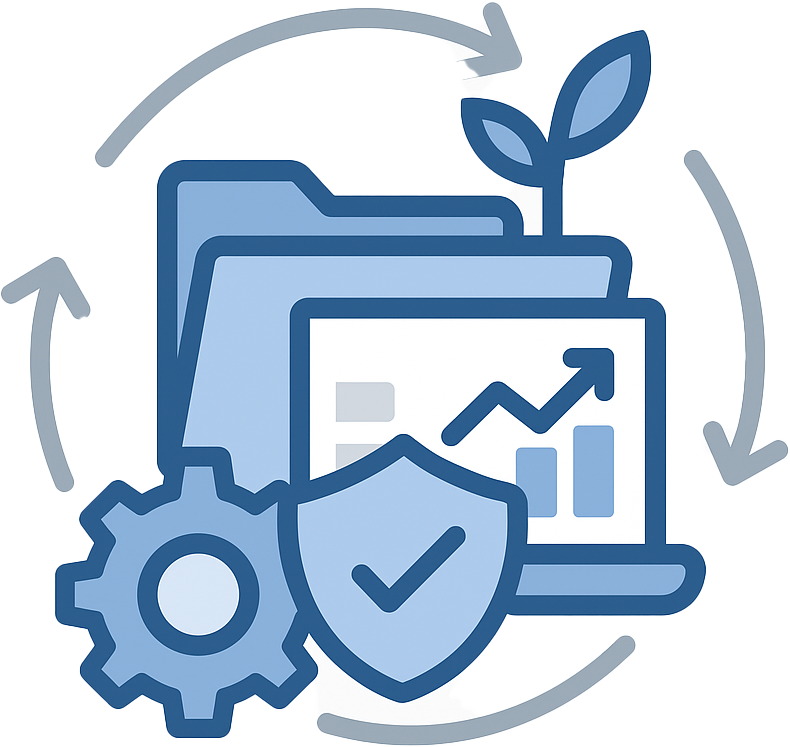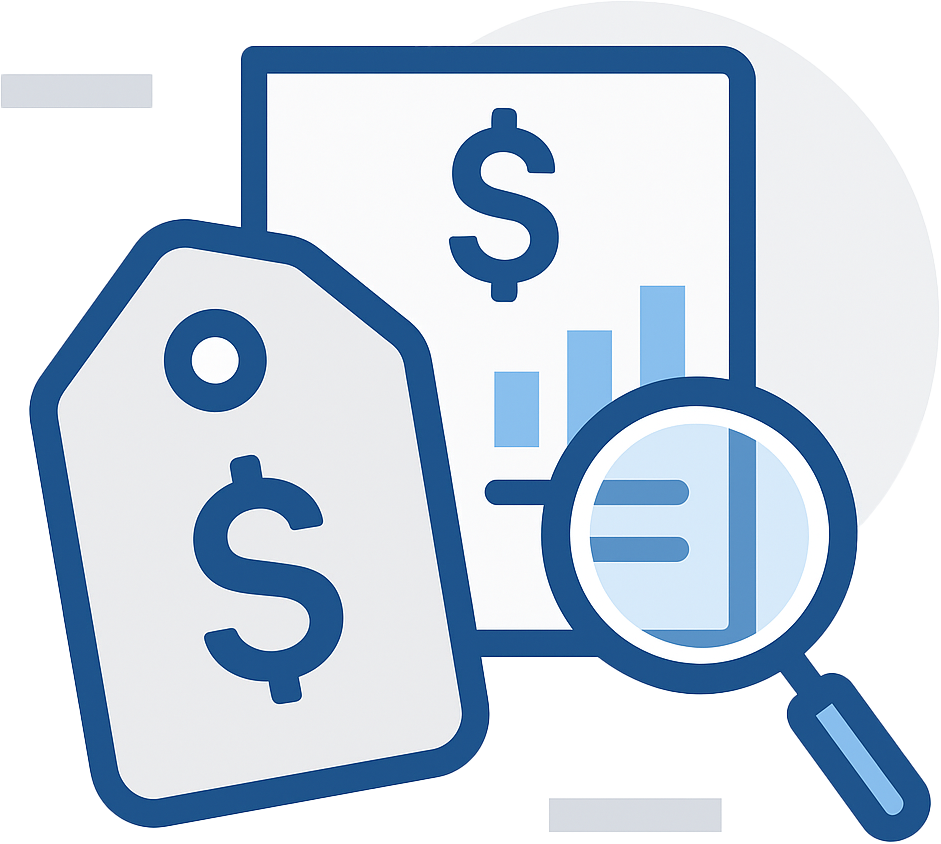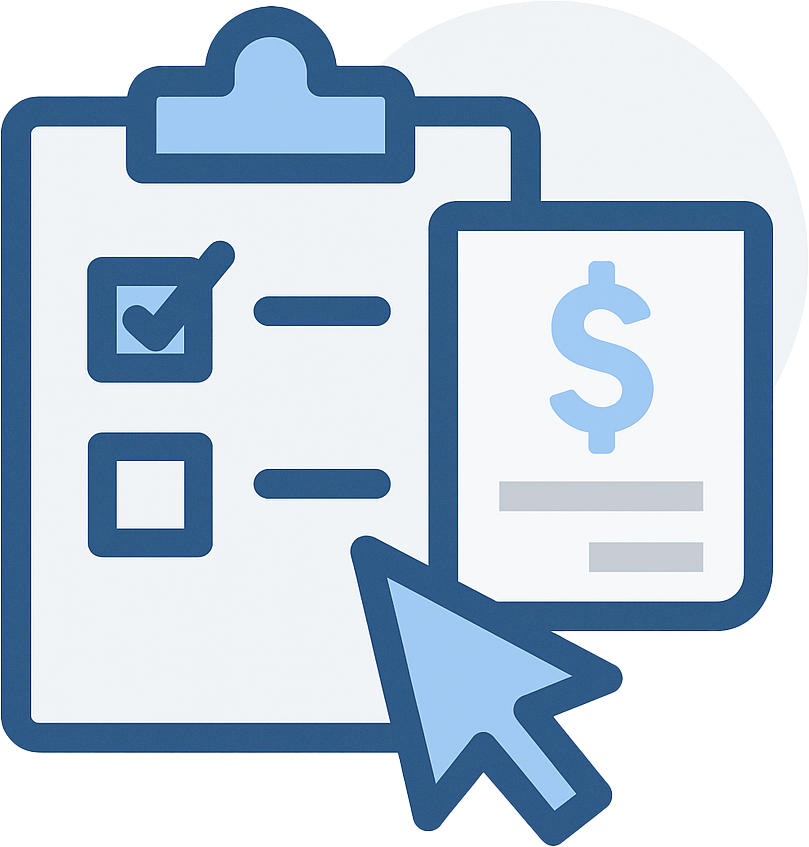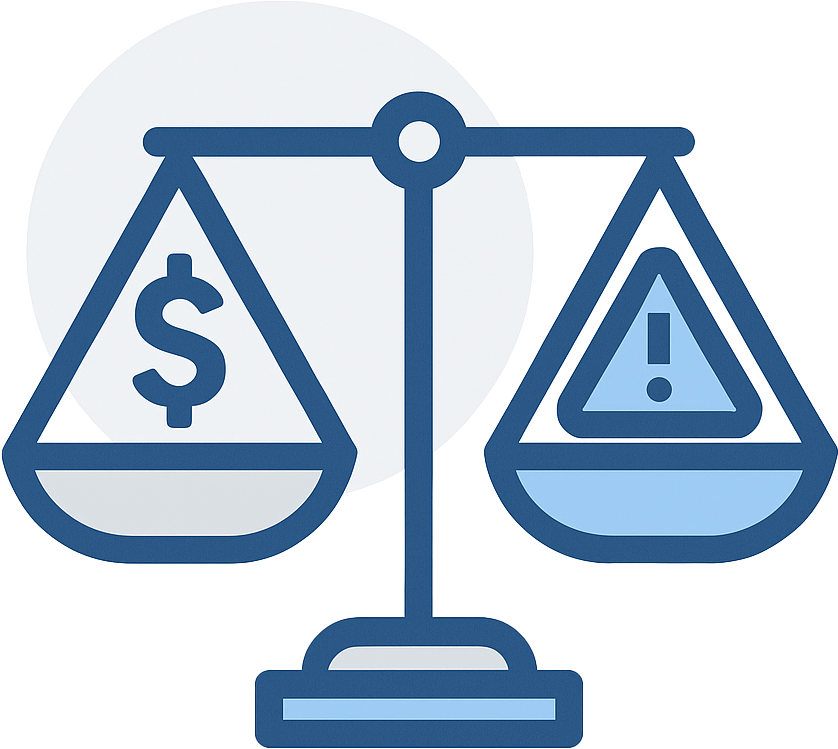We discuss how various organizations can easily discover if their facilities should be conducting TRI Reporting based on their NAICS or SIC codes.
Many of our clients have come to rely on us for conducting their Toxic Release Inventory Reporting at their facilities. We've also been able to tell folks over the phone or an email that they're not an applicable industry and they don't need to worry about it.
We find that many organizations out there are confused, and sometimes incorrectly conducting TRI Reporting at facilities that don't even need to! It all depends on the NAICS or SIC codes your facility is classified under.
It's understandable, since a lot of folks still refer to NAICS codes as SIC codes, and when they look into TRI Reporting, they can't find the information they were hoping to locate. So let's go over what's necessary, and discuss the applicable industries for TRI Reporting.
SIC Codes are now called NAICS Codes
Yes, we know. SIC codes are no more. Everyone is now using NAICS codes.
Here's the problem.
A lot of organizations, and even governmental regulators, are still talking about SIC codes.
You'd expect at least the folks in various governmental regulatory agencies to call them NAICS codes, but we're finding it's a slow crawl to change people's minds.
Here's how we remember it: We're now using NAICS.
Also, SIC codes used to be 4 digits, now NAICS codes are 6 digits. You didn't expect it to get easier, did you?

What NAICS codes are subject to TRI Reporting?
Below if I give a 3 or 4 digit number, that's the first 3 or 4 digits in your NAICS code. Now, here's the full & complete list of the applicable codes that need to look into reporting:
NAICS Sector 212 - Mining
This sector covers the following mining related industries:
- 2121 - Coal Mining - All six-digit codes are covered.
- 2122 - Metal Mining - All six-digit codes are covered except for 212210 - Iron Ore Mining.
- 2123 - Nonmetallic Mineral Mining & Quarrying - Only the following are covered:
- 212324 - Kaolin and Clay Ball Mining - Reporting is only required for facilities operating without a mine or quarry and that are primarily engaged in beneficiating kaolin and clay.
- 212325 - Clay and Ceramic and Refractory Minerals Mining - Reporting is only required for facilities operating without a mine or quarry and that are primarily engaged in beneficiating clay and ceramic and refractory minerals.
- 212393 - Other Chemical and Fertilizer Mineral Mining - Reporting is only required for facilities operating without a mine or quarry and that are primarily engaged in beneficiating chemical or fertilizer mineral raw materials.
- 212399 - All Other Nonmetallic Mineral Mining - Reporting is only required for facilities operating without a mine or quarry and that are primarily engaged in beneficiating nonmetallic minerals.
NAICS Sector 212 - Utilities
This sector covers electric utilities and water and sewage utilities, again with some caveats.
- 2211 - Electric Utilities - All six-digit codes are covered, but reporting is only required for facilities that combust coal and/or oil for the purpose of generating power for distribution in commerce.
- 221330 - Steam and Air-Conditioning Supply - Reporting is only required for facilities engaged in providing combinations of electric, gas, and other services, not elsewhere classified, and that combust coal and/or oil for the purpose of generating power for distribution in commerce.

NAICS Sectors 31 - 33 - Manufacturing
This covers a lot so let's dive into each section individually.
311 - Food
All six-digit codes are covered with some caveats:
- 311811 - Retail Bakeries - This industry is not covered! No reporting necessary!
- 311119 - Other Animal Food Manufacturing - Reporting is not required for facilities primarily engaged in Custom Grain Grinding for Animal Feed.
- 311340 – Non-chocolate Confectionery Manufacturing - Reporting is not required for facilities primarily engaged in the retail sale of candy, nuts, popcorn and other confections not for immediate consumption made on the premises.
- 311352 - Confectionery Manufacturing from Purchased Chocolate - Reporting is not required for facilities primarily engaged in the retail sale of candy, nuts, popcorn and other confections not for immediate consumption made on the premises.
- 311611 - Animal (except Poultry) Slaughtering - Reporting is not required for facilities primarily engaged in Custom Slaughtering for individuals.
- 311612 - Meat Processed from Carcasses - Reporting is not required for facilities primarily engaged in the cutting up and resale of purchased fresh carcasses for the trade (including boxed beef), and in the wholesale distribution of fresh, cured, and processed (but not canned) meats and lard.
312 - Beverage & Tobacco Products
All six-digit codes are covered here as well, with the following caveats:
- 312112 - Bottled Water Manufacturing - Reporting is not required for facilities primarily engaged in bottling mineral or spirit water.
- 312230 - Other Tobacco Product Manufacturing - Reporting is not required for facilities primarily engaged in providing Tobacco Sheeting Services.
313 - Textile Mills
All six-digit codes are covered, with the following caveat:
- 313310 - Textile and Fabric Finishing Mills - Reporting is not required for facilities primarily engaged in converting broadwoven piece goods and broadwoven textiles, and facilities primarily engaged in sponging fabric for tailors and dressmakers (previously classified under SIC 7389, Business Services, NEC (Sponging fabric for tailors and dressmakers), and for facilities primarily engaged in converting narrow woven textiles, and narrow woven piece goods.

314 - Textile Products
Again all six-digit codes are covered, with the following caveats:
- 314120 - Curtain and Linen Mills - Reporting is not required for facilities primarily engaged in making custom drapery for retail sale, and facilities primarily engaged in making custom slipcovers for retail sale.
- 314999 - All Other Miscellaneous Textile Product Mills - Reporting is not required for facilities primarily engaged in binding carpets and rugs for the trade, carpet cutting and binding, and embroidering on textile products (except apparel) for the trade.
315 - Apparel
All six-digit codes are covered, with the following caveats:
- 315220 - Men's and Boys' Cut and Sew Apparel Manufacturing - Reporting is not required for custom tailors primarily engaged in making and selling men's and boys' suits, cut and sewn from purchased fabric, and custom tailors primarily engaged in making and selling men's and boys' dress shirts, cut and sewn from purchased fabric.
- 315240 - Women's, Girls' and Infants' Cut and Sew Apparel Manufacturing - Reporting is not required for custom tailors primarily engaged in making and selling bridal dresses or gowns, or women's, misses' and girls' dresses cut and sewn from purchased fabric.
316 - Leather and Allied Products
All six-digit codes are covered with no caveats.
321 - Wood Products
All six-digit codes are covered here too, no caveats here either.
322 - Paper
All six-digit codes are covered, again with no caveats.
323 - Printing & Publishing
All six-digit codes are covered here also, with the following caveats:
- 323111 - Commercial Printing (except Screen and Books) - Reporting is not required for facilities primarily engaged in reproducing text, drawings, plans, maps, or other copy, by blueprinting, photocopying, mimeographing, or other methods of duplication other than printing or microfilming (i.e., instant printing).

324 - Petroleum & Coal Products
All six-digit codes are covered also.
325 - Chemicals
All six-digit codes are covered here as well, with some caveats:
- 325998 - All Other Miscellaneous Chemical Product and Preparation Manufacturing - Reporting is not required for facilities primarily engaged in Aerosol can filling on a job order or contract basis.
326 - Plastics & Rubber Products
All six-digit are covered except 326212 - Tire Retreading.
327 - Nonmetallic Mineral Products
All six-digit codes are covered.
331 - Primary Metals
All six-digit codes are covered here as well.
332 - Fabricated Metal Products
Again all six-digit codes are covered.
333 - Machinery
You guessed it, all six-digit codes are covered here too!
334 Computer & Electronic Products
All six-digit codes are covered, with a caveat for one industry:
- 334614 - Software and Other Prerecorded Compact Disc, Tape and Record Reproducing
- Reporting is not required for facilities primarily engaged in mass reproducing pre-recorded Video cassettes, and mass reproducing Video tape or disk.

335 - Electrical Equipment
All six-digit codes are covered here also, with one caveat:
- 335312 - Motor and Generator Manufacturing
- Reporting is not required for facilities primarily engaged in armature rewinding on a factory basis.
336 - Transportation Equipment & Allied Services
All six-digit codes are covered here too.
337 - Furniture
All six-digit codes are covered with some caveats:
- 337110 - Wood Kitchen Cabinet and Countertop Manufacturing - Reporting is not required for facilities primarily engaged in the retail sale of household furniture and that manufacture custom wood kitchen cabinets and counter tops.
- 337121 - Upholstered Household Furniture Manufacturing - Reporting is not required for facilities primarily engaged in the retail sale of household furniture and that manufacture custom made upholstered household furniture.
- 337122 – Non upholstered Wood Household Furniture Manufacturing - Reporting is not required for facilities primarily engaged in the retail sale of household furniture and that manufacture non upholstered, household type, custom wood furniture.
339 Miscellaneous Manufacturing
ALL six-digit codes are covered except for 339116 - Dental Laboratories. Additionally, there's some caveats here as well:
- 339113 - Surgical Appliance and Supplies Manufacturing - Reporting is not required for facilities primarily engaged in manufacturing orthopedic devices to prescription in a retail environment.
- 339115 - Ophthalmic Goods Manufacturing - Reporting is not required for lens grinding facilities that are primarily engaged in the retail sale of eyeglasses and contact lenses to prescription for individuals.

NAICS Sector 424 - Merchant Wholesalers, Non-durable Goods
Finally we're out of the 3's and into the 4's. This section is pretty cut and dry. Here's what's covered:
- 424690 - Other Chemical and Allied Products Wholesalers
- 424710 - Petroleum Bulk Stations and Terminals
NAICS Sector 425 - Wholesale Electronic Markets and Agents Brokers
Again pretty cut and dry here. All six-digit codes are covered, with the following caveats:
- 425110 - Business to Business Electronic Markets - Reporting is only required for facilities previously classified in SIC 5169, Chemicals and Allied Products, Not Elsewhere Classified.
- 425120 - Wholesale Trade Agents and Brokers - Reporting is only required for facilities previously classified in SIC 5169, Chemicals and Allied Products, Not Elsewhere Classified.
NAICS Sector 511, 512, and 519 - Publishing
This sector has specific industries that have to report, and others that don't. Here's who needs to report:
- 511110 - Newspaper Publishers
- 511120 - Periodical Publishers
- 511130 - Book Publishers
- 511140 - Directory and Mailing List Publishers
- Reporting is not required for facilities that are primarily engaged in furnishing services for direct mail advertising including address list compilers, address list publishers, address list publishers and printing combined, address list publishing , business directory publishers, catalog of collections publishers, catalog of collections publishers and printing combined, mailing list compilers, directory compilers, and mailing list compiling services.
- 511191 - Greeting Card Publishers
- 511199 - All Other Publishers
- 512220 - Integrated Record Production/Distribution
- 512230 - Music Publishers
- Reporting is not required for facilities primarily engaged in music copyright authorizing use, music copyright buying and licensing, and music publishers working on their own account.
- 519130 - Internet Publishing and Broadcasting and Web Search Portals
- Reporting is required for facilities primarily engaged in Internet newspaper publishing, Internet periodical publishing, Internet book publishing, Miscellaneous Internet publishing, and Internet greeting card publishers.
- Reporting is not required for facilities primarily engaged in Web search portals.

NAICS Sector 562 - Hazardous Waste
This section can be a little more intricate because there's a fair amount of additional regulations that come into play, but it more or less breaks down like this:
- 562112 - Hazardous Waste Collection
- Reporting is required for facilities primarily engaged in solvent recovery services on a contract or fee basis.
- 5622 - Waste Treatment and Disposal
All six-digit codes are covered with the following caveats:
- 562211 - Hazardous Waste Treatment and Disposal - Reporting is only required for facilities regulated under the Resource Conservation and Recovery Act, subtitle C, 42 U.S.C. 6921 et seq.
- 562212 - Solid Waste Landfill - Reporting is only required for facilities regulated under the Resource Conservation and Recovery Act, subtitle C, 42 U.S.C. 6921 et seq.
- 562213 - Solid Waste Combustors and Incinerators - Reporting is only required for facilities regulated under the Resource Conservation and Recovery Act, subtitle C, 42 U.S.C. 6921 et seq.
- 562219 - Other Nonhazardous Waste Treatment and Disposal - Reporting is only required for facilities regulated under the Resource Conservation and Recovery Act, subtitle C, 42 U.S.C. 6921 et seq.
- 562920 - Materials Recovery Facilities
- Reporting is required for facilities regulated under the Resource Conservation and Recovery Act, subtitle C, 42 U.S.C. 6921 et seq.
All Other Miscellaneous Manufacturing
This includes the following various NAICS codes:
- 111998 - All Other Miscellaneous Crop Farming - Reporting is only required for facilities primarily engaged in reducing maple sap to maple syrup.
- 113310 - Logging
- 211112 - Natural Gas Liquid Extraction - Reporting is required for facilities that recover sulfur from natural gas.
- 488390 - Other Support Activities for Water Transportation - Reporting is required for facilities that are engaged in providing routine repair and maintenance of ships and boats from floating dry-docks.
- 541710 - Research and Development in the Physical, Engineering, and Life Sciences (except Biotechnology) - Reporting is required for facilities that are primarily engaged in guided missile and space vehicle engine research and development and in guided missile and space vehicle parts (except engines) research and development.
- 811490 - Other Personal and Household Goods Repair and Maintenance - Reporting is required for facilities that are primarily engaged in repairing and servicing pleasure and sail boats without retailing new boats.
Federal facilities need to conduct TRI Reporting no matter what.
Back in the early 1990's, President Bill Clinton signed an executive order titled "Federal Compliance With Right-to-Know Laws and Pollution Prevention Requirements."
In short, this order established toxic chemical release reporting by all federal facilities that meet TRI threshold reporting thresholds regardless of the facility's NAICS code.
In short, federal facilities need to conduct TRI Reporting no matter what if they meet reporting thresholds. Doesn't matter what kind of facility, they're all included!
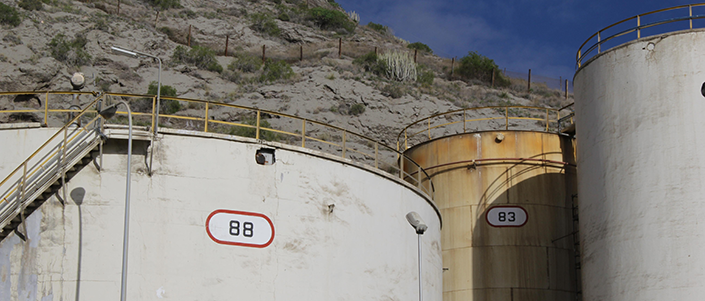
NAICS Codes & TRI Reporting Thresholds
If you're on that list above, you might have to report. I tell folks there's 3 thresholds or checks or whatever you want to call it that you have to meet in order to need to report. The NAICS Code is number one.
But before we get into it, I say might because you do have to meet reportable thresholds. If you meet them, you report. If you don't, you don't report. Simple enough, right?
Here's some advice: if you don't have to report, explain why. Type it out and save it away somewhere. Maybe it's in a filing cabinet that covers all your environmental permits, plans, and approvals. Maybe it's saved on a hard drive somewhere. Regardless, in case you ever get inspected, having something that says "hey we looked into reporting in 2016 and figured out we didn't have to report because blank" will be very, very helpful should the USEPA ever come knocking. BUT, you better make darn sure that your reason for not reporting is valid.
Now, here's the three reportable thresholds you'll have to meet to report.
Employees & TRI Reporting
You need to have 10 full-time employees or full-time employee equivalents. That means if you have 5 full-time employees and 10 employees working 20 hours a week, you qualify. If you have 20 employees working 20 hours a week each, you qualify. If you have 8 full time employees and 2 truck drivers who spend half their week at one facility and the other half at another facility, you qualify.
The thing to remember is 20,000 hours. That's where we get 10 full-time employees from (10 employees at 40 hours a week is 20,800 hours a year, so you qualify).

Toxic Chemicals Processed, Manufactured, or Used
This is where people go ha! not me! They're wrong.
The USEPA has a massive list of toxic chemicals that are covered under TRI Reporting. These toxic chemicals are found in a lot of various materials. In fact, I can almost guarantee you have these toxic chemicals at your operation right now in some sort of material. Yes there's things that are no brainers like industrial solvents and hazardous materials that you should steer clear of, but TRI Reporting applies to a lot of mundane things as well.
For example, if you were running a concrete plant and making concrete out of sand, cement, crushed aggregates, and water, what could possibly be hazardous?!
Well, using that example, the USEPA knows there's lead, mercury, and some other nasty chemicals (in very small, trace amounts) in cement. Ever see a concrete plant on a windy day? Those "releases" from the facility likely contains cement dust. That cement dust contains lead & mercury. You are releasing lead & mercury into the atmosphere and the local community. And, if you were to bring concrete to your facility and crush it for further use, you might be releasing more cement dust.
Imagine you heard on the news "Industrial facility releasing lead into the atmosphere here in Smalltown, USA. More at 11!" People would be up in arms! See what I'm getting at?
You don't need to only worry about TRI Reporting if you're running some massive petrochemical facility. TRI Reporting (as you can tell from the list of NAICS codes above) impacts a lot of industries.
Look at your SDS, talk to industry experts, and figure out what's in the products your manufacturing, processing, or using at your operation. If any of those chemicals are the USEPA's List of Lists, then you need to look into TRI Reporting.
And, if you do have chemicals on that list, there are reportable thresholds for reporting that you need to know. Depending on the chemical, the reportable threshold could be 25,000 pounds, or down to 10 pounds. It depends on the chemical and how, for lack of a better term, bad it is. If you've used a certain amount of a chemical over a calendar year, and it's more than reportable thresholds, you have to report.
But how can you find out? Again, look at your SDS. You're going to need to figure out how much of the toxic chemical is in the material, do some math, and figure out if you've used enough of to trigger the need to report.
This is harder than I'm making it, as some SDS's won't have the information you need, and you might have to take samples to labs for analysis, and you're still on the hook for reporting regardless.

TRI Reporting & NAICS Codes - The First Step to Determine Applicability
Whether or not you need to report, at the base level, is going to be based off of your NAICS code. If you're code isn't covered, you won't need to report. To learn more, click here to contact us or give us a call at 609-693-8301 to discuss your organization's environmental needs today.


